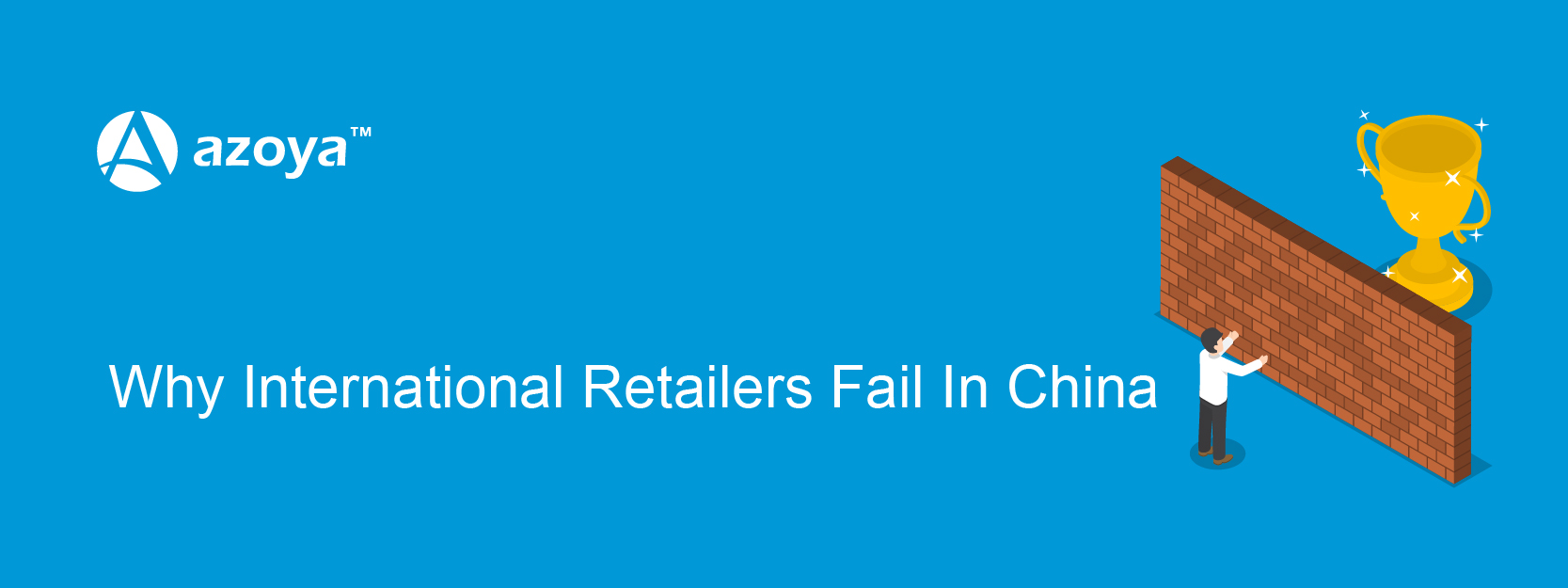Why International Retailers Fail In China
Western retailers fail in China because they don’t listen to the local market, underestimate the level of price competition and consumer savviness.
by Azoya

Western retailers fail in China because they don’t listen to the local market, underestimate the level of price competition and consumer savviness.
That’s the view of Don Zhao the founder of Azoya, a Shenzhen-based solutions provider which offers white label ecommerce infrastructure for retailers, like Amcal, enter China.
Established in 2013, Azoya provides cloud hosting, ecommerce platform setup, warehousing and logistics, payments and customer service, as well ad branding and digital marketing.
Azoya represents 35 overseas retailers from 11 countries including Australian pharmacies, Amcal (Sigma Pharmaceuticals), Pharmacy Online, Roy Young and Pharmacy 4 Less.
The company has a revenue sharing model with its retail clients which varies based on product category, country, shipping costs and duties. That means the company must be strategic about which retailers it partners with.
“We decline over 95 per cent of inquiries because not everyone is going to be successful,” Zhao told Which-50. “It’s different from category to category.”
Without a careful understanding of category, price, online traffic cost, shipping, duties a business will fail, Zhao said.
For example, a supermarket giant may be an influential brand to bring to China, but grocery operations are challenging because they rely heavily on shipping which pushes up costs. In the end, the final price per basket may become more than customers are willing to pay.
It’s a different story for a beauty retailer from Europe, for example, where the margin and shipping costs make it a more competitive category than grocery.
According to data from Forrester, with $681 billion in online retail sales in 2016, China is the largest online retail market globally, followed by the US. Forrester expects China will become the first market to reach $1 trillion in online retail sales in 2020.
Within China, more than 19 per cent of all retail sales take place online, and Forrester expects online retail’s share of total retail sales to reach 24 per cent by 2021.
Those figures make China an attractive proposition for international retailers and cross-border ecommerce, which plays by a different set of rules than traditional import models, make it more accessible than in the past.
Even with lower barriers to enter China, it remains a challenging market for foreign retailers thanks to fierce competition on price and customer service.
International retailers come unstuck in China when they fail to listen to the local market and underestimate the customer’s sophistication, Zhao said.
“Now customers in tier one and two cities are very sophisticated in terms of knowledge of overseas products. They compare price and they know what they want.”
A penchant for pushing unknown, higher-margin private label products to Chinese consumers is another trap for international retailers, Zhao said.
“Private label products have higher margins, but the market may not accept it. That means the investment may take longer to get back.”
Key Opinion Leaders
One aspect of Azoya’s digital marketing strategy is to work with online influencers, known as key opinion leaders (KOLs). Rather than approaching the KOL directly, Azoya works with agencies that have contracts with the influencers. “It’s similar to celebrities with producers,” Zhao explains.
“Our philosophy is never go to the KOL themselves because you don’t know what the market will bring the next day. But if you have a stable contract with the KOL companies, a B2B approach, that keeps the KOL accessible but it’s done to manage the different market changes,” Zhao said.
Last year Azoya organised a 12 person delegation Chinese influencers to visit five pharmacies and their warehouses in Sydney.
The aim of the campaign is to help build a bridge between Chinese online shoppers and Australian retailers by offering face-to-face interactions to help them understand the authenticity and reliability of ethical products from Australia.